[등심]Accident Boat It's Not As Expensive As You Think
116
2023.03.03 05:05
짧은주소
본문
What Happens If You Are Injured in a Boat Accident?
If you or a loved one is injured as a result of a boating accident, you may be entitled to compensation. An attorney for personal injuries can assist you in determining who's at fault and the amount of damages you're entitled to.
Many Athens Boating Accident Lawyer accidents happen because of operator negligence. This is especially true if the boater is under influence of alcohol or other drugs.
Falling Overboard
The boating lifestyle is something that many people enjoy, but it's important to keep in mind that accidents can happen on the water. Falls overboard are one of the most common accidents that can result in serious injuries.
Falls overboard can cause hypothermia and dehydration as well as drowning. These conditions can be fatal if not treated.
There are a few things you can do if you're in this situation to increase your chances of survival. This includes staying calm and above the water, and wearing a life jacket. It is also important to wear your clothing for as long as possible.
If you're on a cruise there's an emergency protocol that can help save your life in case of an accident overboard. In such a case the crew should be notified immediately . They can throw life preservers into the water to mark the area in which the person fell overboard.
Typically, this is done during daylight hours when visibility is good. It can be difficult to rescue someone who has fallen drowning in the dark.
Remember that you must shout "Man Overboard!" to alert the rest of the. Once they've done that, they will sound an alarm on the bridge and then gather the crew to prepare for a search and rescue mission.
Once the rescue team is on board, they will work to find the overboard person. Once they do find them, the rescuers will make efforts to pull them out of the water as swiftly as possible.
A man who falls overboard is a scary experience, and it's crucial to keep in mind that you're in the care of a trained and experienced rescue team. They could save your life if you are calm, follow their directions and don't forget to wear your life jacket.
A life jacket is the best way to prevent falling overboard on a boat. Also, avoid standing on the deck if you can assist it. It is easy to fall and slip on the decks of larger vessels, particularly in bad weather or high winds.
Drowning
A type of water-related injury drowning can be caused by water exposure. It can happen in freshwater areas or in the ocean. It is one of the main causes of death and injuries for both adults and children in the world today.
There are many ways to avoid drowning. These include improving flood resilience, educating children about water safety and enhancing accessibility to emergency evacuation services. If you are on a boat with someone who is having trouble breathing and is struggling to breathe, you can do cardiopulmonary rescue (CPR) to assist them regain their breath and get them to circulate.
The process of drowning starts with panic attacks and breathing difficulties. The person will have trouble staying above the water, and may attempt to thrash or splash. They might also shout or shake their hands.
A person will eventually stop struggling and stop trying to pull air out of their lungs. This is to prevent water from getting into the trachea. If this happens it will be an initial period of hypoxemia. They may lose consciousness or be unconscious.
This is the initial phase of drowning, and typically it takes about 2 to 3 minutes for an adult to go into this stage. During this time the skin can appear pale or blue and the organs are not receiving sufficient oxygen-rich blood.
The body will remain unconscious until breathing is restored. This is a serious situation and you should seek help immediately.
When a victim is in this stage of drowning, it's vital to ensure they are lying on their backs with a flat surface. This will allow you lift them up and put them in recovery.
It is recommended to call the person and talk to them with a soft voice. You should also monitor their breathing until an ambulance arrives.
You can also help the drowned person to get them out of harm's way by putting them in a safe place and then warming them up by using blankets or dry clothing. If necessary, you can call an ambulance to offer further assistance.
Capsized Vessel
In a boat accident, a vessel can capsize. This is a huge risk as it is very dangerous for those on board and their cargo. Accidents can cause death and Athens Boating Accident Lawyer injuries.
Capsizing is usually caused by an overloaded vessel or an inability to balance its weight correctly. These problems can often be resolved by reducing or balancing the weight.
Another common cause of capsizes is weather. Even small boats can be easily overwhelmed by small waves or wakes especially if they are full of water and are low in the water. A sudden squall can flip larger boats so make sure you check the weather forecast prior to you leave.
Certain boats are also fitted with internal buoyancy, which can help the vessel stay afloat in the case of a capsize or a flooding. This helps rescuers to locate the vessel and ensure that everyone onboard is safe.
The best way to avoid capsizing is to practice good seamanship and be aware of your limits. This is important in commercial and recreational boats, and it will stop many fatal accidents on the water.
If you do find yourself in a boat that has capsized, it is important to remain calm and save your energy by floating as long as you can. It is also advisable to conduct an inventory of your passengers and ensure that all the people on board are wearing their life jackets.
It is an excellent idea not to quit the boat. This is because it will be much easier for Athens Boating Accident Lawyer rescuers to find the vessel that has capsized compared to an individual swimmer.
If you are unsure, you might consider leaving the capsized vessel and trying to get to a nearby beach or island. But even the most experienced swimmers can get tired or hypothermic after a short swim.
It is an excellent idea for boats to carry an Emergency Position Idicating Radio Beacon or (EPIRB) and distress flares in case of an emergency. They can also help improve your visibility and notify other vessels and aircrafts of your presence on the water.
Passengers Who Go Overboard
If a person falls off the boat and falls overboard, it is extremely risky. It is possible to die if they fall into water that is colder than the sea around them or seriously injured. It can take several hours or even days to rescue a drowned victim.
Although the majority of overboard accidents are caused by alcohol, they can also be accidental too. One example: A man slipped on a table and was thrown over the sea while the vessel was speeding along on a cruise.
Luckily, the majority of these accidents are not fatal however, they is a bit scary to watch. It is important to know how you can take someone out of the water if they go too far.
It is an excellent rule of thumb to lower your center of gravity and pull a passenger from the water with both hands. This will help you keep your balance and avoid going too far.
If you're unable to rescue the passenger out of the water on by yourself, it is imperative that you ask for assistance from other passengers. This increases the chances of saving their lives and finding them.
For the greatest chance of rescue, it's also recommended that you throw a life-ring in the direction of the victim who went overboard. This will help you mark the exact spot they've fallen overboard so that the crew members can find them faster.
It is also recommended to assign others to keep an eye on the person on the top. This will make it easier to steer back to the helmsman and raise their eyes when they are asleep or sink.
It is crucial to have an idea of how to train your crew to perform this task in the event of an accident. This is particularly crucial in the event of a boating accident in dangerous waters or when your boat is traveling at a high speed that is difficult to manage.
Fortunately, many ships have special sensors that can alert the crew when a passenger falls overboard. This can be particularly helpful in situations where the passenger is able to be seen in the dark, as visibility is minimal and the water is relatively cold.
If you or a loved one is injured as a result of a boating accident, you may be entitled to compensation. An attorney for personal injuries can assist you in determining who's at fault and the amount of damages you're entitled to.
Many Athens Boating Accident Lawyer accidents happen because of operator negligence. This is especially true if the boater is under influence of alcohol or other drugs.
Falling Overboard
The boating lifestyle is something that many people enjoy, but it's important to keep in mind that accidents can happen on the water. Falls overboard are one of the most common accidents that can result in serious injuries.
Falls overboard can cause hypothermia and dehydration as well as drowning. These conditions can be fatal if not treated.
There are a few things you can do if you're in this situation to increase your chances of survival. This includes staying calm and above the water, and wearing a life jacket. It is also important to wear your clothing for as long as possible.
If you're on a cruise there's an emergency protocol that can help save your life in case of an accident overboard. In such a case the crew should be notified immediately . They can throw life preservers into the water to mark the area in which the person fell overboard.
Typically, this is done during daylight hours when visibility is good. It can be difficult to rescue someone who has fallen drowning in the dark.
Remember that you must shout "Man Overboard!" to alert the rest of the. Once they've done that, they will sound an alarm on the bridge and then gather the crew to prepare for a search and rescue mission.
Once the rescue team is on board, they will work to find the overboard person. Once they do find them, the rescuers will make efforts to pull them out of the water as swiftly as possible.
A man who falls overboard is a scary experience, and it's crucial to keep in mind that you're in the care of a trained and experienced rescue team. They could save your life if you are calm, follow their directions and don't forget to wear your life jacket.
A life jacket is the best way to prevent falling overboard on a boat. Also, avoid standing on the deck if you can assist it. It is easy to fall and slip on the decks of larger vessels, particularly in bad weather or high winds.
Drowning
A type of water-related injury drowning can be caused by water exposure. It can happen in freshwater areas or in the ocean. It is one of the main causes of death and injuries for both adults and children in the world today.
There are many ways to avoid drowning. These include improving flood resilience, educating children about water safety and enhancing accessibility to emergency evacuation services. If you are on a boat with someone who is having trouble breathing and is struggling to breathe, you can do cardiopulmonary rescue (CPR) to assist them regain their breath and get them to circulate.
The process of drowning starts with panic attacks and breathing difficulties. The person will have trouble staying above the water, and may attempt to thrash or splash. They might also shout or shake their hands.
A person will eventually stop struggling and stop trying to pull air out of their lungs. This is to prevent water from getting into the trachea. If this happens it will be an initial period of hypoxemia. They may lose consciousness or be unconscious.
This is the initial phase of drowning, and typically it takes about 2 to 3 minutes for an adult to go into this stage. During this time the skin can appear pale or blue and the organs are not receiving sufficient oxygen-rich blood.
The body will remain unconscious until breathing is restored. This is a serious situation and you should seek help immediately.
When a victim is in this stage of drowning, it's vital to ensure they are lying on their backs with a flat surface. This will allow you lift them up and put them in recovery.
It is recommended to call the person and talk to them with a soft voice. You should also monitor their breathing until an ambulance arrives.
You can also help the drowned person to get them out of harm's way by putting them in a safe place and then warming them up by using blankets or dry clothing. If necessary, you can call an ambulance to offer further assistance.
Capsized Vessel
In a boat accident, a vessel can capsize. This is a huge risk as it is very dangerous for those on board and their cargo. Accidents can cause death and Athens Boating Accident Lawyer injuries.
Capsizing is usually caused by an overloaded vessel or an inability to balance its weight correctly. These problems can often be resolved by reducing or balancing the weight.
Another common cause of capsizes is weather. Even small boats can be easily overwhelmed by small waves or wakes especially if they are full of water and are low in the water. A sudden squall can flip larger boats so make sure you check the weather forecast prior to you leave.
Certain boats are also fitted with internal buoyancy, which can help the vessel stay afloat in the case of a capsize or a flooding. This helps rescuers to locate the vessel and ensure that everyone onboard is safe.
The best way to avoid capsizing is to practice good seamanship and be aware of your limits. This is important in commercial and recreational boats, and it will stop many fatal accidents on the water.
If you do find yourself in a boat that has capsized, it is important to remain calm and save your energy by floating as long as you can. It is also advisable to conduct an inventory of your passengers and ensure that all the people on board are wearing their life jackets.
It is an excellent idea not to quit the boat. This is because it will be much easier for Athens Boating Accident Lawyer rescuers to find the vessel that has capsized compared to an individual swimmer.
If you are unsure, you might consider leaving the capsized vessel and trying to get to a nearby beach or island. But even the most experienced swimmers can get tired or hypothermic after a short swim.
It is an excellent idea for boats to carry an Emergency Position Idicating Radio Beacon or (EPIRB) and distress flares in case of an emergency. They can also help improve your visibility and notify other vessels and aircrafts of your presence on the water.
Passengers Who Go Overboard
If a person falls off the boat and falls overboard, it is extremely risky. It is possible to die if they fall into water that is colder than the sea around them or seriously injured. It can take several hours or even days to rescue a drowned victim.
Although the majority of overboard accidents are caused by alcohol, they can also be accidental too. One example: A man slipped on a table and was thrown over the sea while the vessel was speeding along on a cruise.
Luckily, the majority of these accidents are not fatal however, they is a bit scary to watch. It is important to know how you can take someone out of the water if they go too far.
It is an excellent rule of thumb to lower your center of gravity and pull a passenger from the water with both hands. This will help you keep your balance and avoid going too far.
If you're unable to rescue the passenger out of the water on by yourself, it is imperative that you ask for assistance from other passengers. This increases the chances of saving their lives and finding them.
For the greatest chance of rescue, it's also recommended that you throw a life-ring in the direction of the victim who went overboard. This will help you mark the exact spot they've fallen overboard so that the crew members can find them faster.
It is also recommended to assign others to keep an eye on the person on the top. This will make it easier to steer back to the helmsman and raise their eyes when they are asleep or sink.
It is crucial to have an idea of how to train your crew to perform this task in the event of an accident. This is particularly crucial in the event of a boating accident in dangerous waters or when your boat is traveling at a high speed that is difficult to manage.
Fortunately, many ships have special sensors that can alert the crew when a passenger falls overboard. This can be particularly helpful in situations where the passenger is able to be seen in the dark, as visibility is minimal and the water is relatively cold.






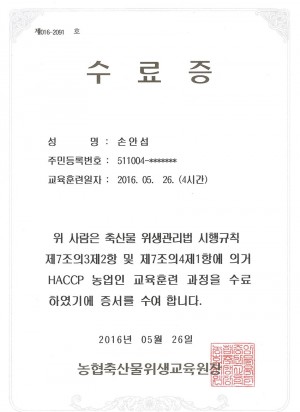
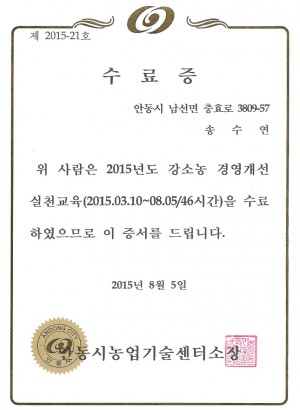
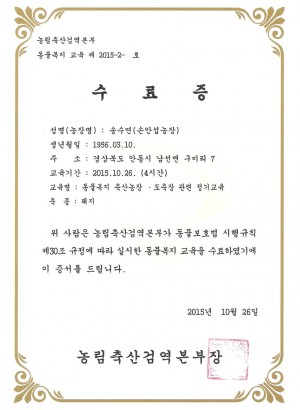
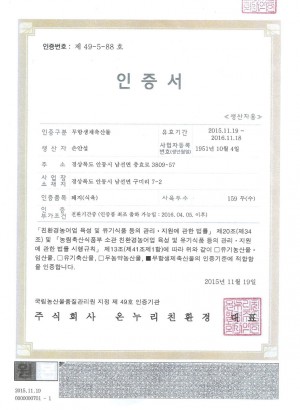
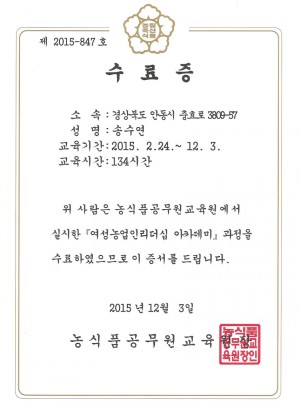
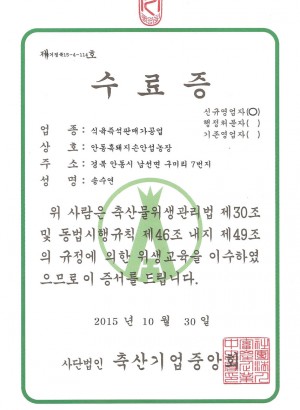

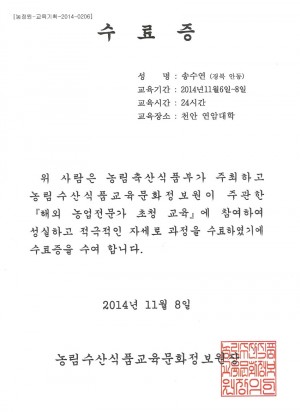

댓글목록
등록된 댓글이 없습니다.